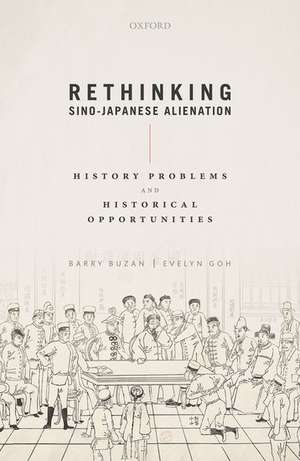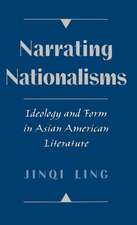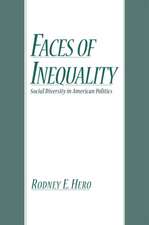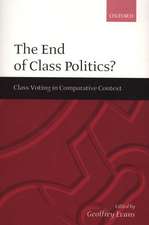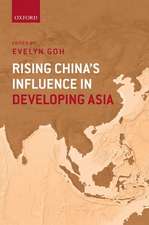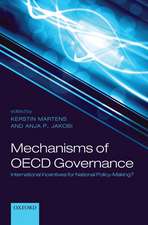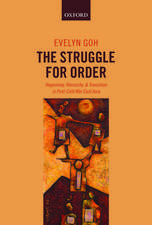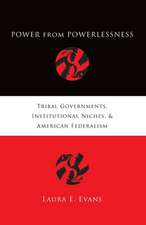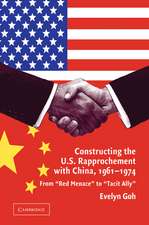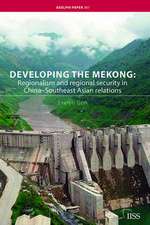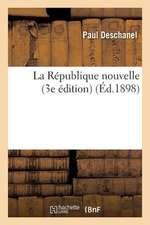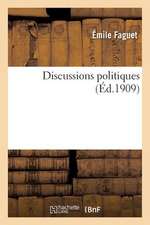Rethinking Sino-Japanese Alienation: History Problems and Historical Opportunities
Autor Barry Buzan, Evelyn Gohen Limba Engleză Paperback – 23 ian 2020
| Toate formatele și edițiile | Preț | Express |
|---|---|---|
| Paperback (1) | 238.89 lei 31-38 zile | |
| OUP OXFORD – 23 ian 2020 | 238.89 lei 31-38 zile | |
| Hardback (1) | 703.44 lei 31-38 zile | |
| OUP OXFORD – 23 ian 2020 | 703.44 lei 31-38 zile |
Preț: 238.89 lei
Preț vechi: 253.84 lei
-6% Nou
Puncte Express: 358
Preț estimativ în valută:
45.71€ • 47.73$ • 37.83£
45.71€ • 47.73$ • 37.83£
Carte tipărită la comandă
Livrare economică 24-31 martie
Preluare comenzi: 021 569.72.76
Specificații
ISBN-13: 9780198851394
ISBN-10: 0198851391
Pagini: 356
Dimensiuni: 152 x 230 x 19 mm
Greutate: 0.54 kg
Editura: OUP OXFORD
Colecția OUP Oxford
Locul publicării:Oxford, United Kingdom
ISBN-10: 0198851391
Pagini: 356
Dimensiuni: 152 x 230 x 19 mm
Greutate: 0.54 kg
Editura: OUP OXFORD
Colecția OUP Oxford
Locul publicării:Oxford, United Kingdom
Recenzii
A remarkable book: elegantly written, cogently argued, expertly researched and fearless in its approach and arguments.
There are few conflicts that are more significant to international affairs than the Sino-Japanese dispute, and few that seem more intractable. In this noteworthy book, Buzan and Goh indicate how the friction should best be understood and show approaches through which it could be overcome. It is a book of resounding importance both for those who study international relations and those preoccupied with conflict resolution and reconciliation.
The nature of order in Asia is one of the most pressing questions of our era, but analysis too often lacks historical depth. Goh and Buzan's study is deeply impressive in its extraordinary historical detail as well as its willingness to show continuity and change over a longer period of time in Asia. For both IR scholars and historians, this is an essential read on an urgent issue.
Rethinking Sino-Japanese Alienation makes a major contribution to understanding great power relations in Northeast Asia. It advances the profound theoretical insight that constitutive shared understandings, shared socio-normative structures, are critical in international relations. Currently, Northeast Asian states see themselves as victims and other states in the region as hostiles based on rival historical interpretations. Relations thus remain antagonistic given the lack of shared views regarding the nature of the regional society. Buzan and Goh masterfully show how the socio-normative structure is currently contested, preventing more cordial interactions. They seek to break this impasse by elucidating alternative historical interpretations that might alter current biases.
International Relations theory has drawn so much from European history that it often fails to explain the intricacies of power relations elsewhere. This bold and masterly study turns to a two-power relationship between China and Japan to help rethink the role of historical continuity and change in Northeast Asia that could shape a new regional and global order.
There are few conflicts that are more significant to international affairs than the Sino-Japanese dispute, and few that seem more intractable. In this noteworthy book, Buzan and Goh indicate how the friction should best be understood and show approaches through which it could be overcome. It is a book of resounding importance both for those who study international relations and those preoccupied with conflict resolution and reconciliation.
The nature of order in Asia is one of the most pressing questions of our era, but analysis too often lacks historical depth. Goh and Buzan's study is deeply impressive in its extraordinary historical detail as well as its willingness to show continuity and change over a longer period of time in Asia. For both IR scholars and historians, this is an essential read on an urgent issue.
Rethinking Sino-Japanese Alienation makes a major contribution to understanding great power relations in Northeast Asia. It advances the profound theoretical insight that constitutive shared understandings, shared socio-normative structures, are critical in international relations. Currently, Northeast Asian states see themselves as victims and other states in the region as hostiles based on rival historical interpretations. Relations thus remain antagonistic given the lack of shared views regarding the nature of the regional society. Buzan and Goh masterfully show how the socio-normative structure is currently contested, preventing more cordial interactions. They seek to break this impasse by elucidating alternative historical interpretations that might alter current biases.
International Relations theory has drawn so much from European history that it often fails to explain the intricacies of power relations elsewhere. This bold and masterly study turns to a two-power relationship between China and Japan to help rethink the role of historical continuity and change in Northeast Asia that could shape a new regional and global order.
Notă biografică
Barry Buzan is a Fellow of the British Academy, Emeritus Professor in the LSE Department of International Relations and a Senior Fellow at LSE IDEAS. He was formerly Montague Burton Professor in the Department of International Relations, LSE. Among his books are, with Richard Little, International Systems in World History (2000); with Ole Wæver, Regions and Powers (2003); From International to World Society? (2004); with Lene Hansen, The Evolution of International Security Studies (2009); An Introduction to the English School of International Relations (2014); with George Lawson, The Global Transformation: History, Modernity and International Relations (2015); and with Laust Schouenborg, Global International Society: A New Framework for Analysis (2018). He has written more than a dozen article on China and Japan, including a trilogy of pieces in the Chinese Journal of International Politics exploring the possibilities for China's 'peaceful rise'.Evelyn Goh is the Shedden Professor of Strategic Policy Studies at The Australian National University, Australia, where she is also Director of Research in the Strategic and Defence Studies Centre. Her research focuses on security and international relations in the Asia-Pacific, U.S.-China diplomatic history and contemporary relations, and the economic-security nexus in China's strategic policy. Her publications include The Struggle for Order: Hegemony, Hierarchy and Transition in Post-Cold War East Asia (OUP, 2013, 2015); 'Great Powers and Hierarchical Order in Southeast Asia: Analyzing Regional Security Strategies', International Security 32:3 (Winter 2007/8): 113-57; Constructing the US Rapprochement with China, 1961-1974: From Red Menace to Tacit Ally (Cambridge University Press, 2004); and the edited volume Rising China's Influence in Developing Asia (OUP, 2016). She is co-editor of the Cambridge Studies in International Relations book series.
